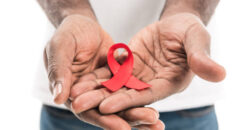 You’ve probably already heard countless reasons why soda is bad for you, but can it actually kill you? You already know that soda is basically sugar water with no nutritional value that can increase your risks for obesity and diabetes. According to the Center for Science in the Public Interest, sweetened drinks are the largest contributor of empty calories and processed sugar in both the American and European diet.
You’ve probably already heard countless reasons why soda is bad for you, but can it actually kill you? You already know that soda is basically sugar water with no nutritional value that can increase your risks for obesity and diabetes. According to the Center for Science in the Public Interest, sweetened drinks are the largest contributor of empty calories and processed sugar in both the American and European diet.
But experts are also quick to point out that other than sugar, there are nine other potentially dangerous ingredients in soda, including carcinogenic artificial colors and phosphoric acid, which can contribute to everything from obesity to cancer to the depletion of the nutrients that are needed for strong bones.
Here are a few new very disturbing soda facts that, trust us, you need to know about…
In the news again…
Soda, and the concerning chemicals in it, is back in the news yet again after Consumer Reports issued a new study finding: the golden-brown color of many soft drinks comes with a dose of the chemical 4-methylimidazole, or 4-MeI. On U.S. product labels it appears simply as “caramel coloring.
Those who say the chemical may possibly cause cancer include the World Health Organization’s International Agency for Research on Cancer and the state of California, which now limits manufacturers to 29 micrograms of exposure for the average consumer per day.
Foods exceeding that limit have to carry a warning label that reads: “WARNING: This product contains a chemical known to the State of California to cause cancer.”
But when Consumer Reports purchased sodas in California and had them analyzed by a lab, it found that one 12-ounce serving of Pepsi One or Malta Goya exceeded the levels permitted without a warning label.
As if this latest news wasn’t disturbing enough, here are some additional reasons to limit/avoid soda.
It may help cause diabetes.
A new study out today suggests that just one 12 ounce serving of a sugar-sweetened beverage can raise the risk of developing type 2 diabetes by up to 22 percent. Notably, even diet soda drinkers had to worry about developing diabetes.
Why?
“Aside from sugar, there are nine other potentially dangerous ingredients in soda, including carcinogenic artificial colors and phosphoric acid, which can contribute to everything from obesity to cancer to the depletion of micronutrients essential for strong bones,” noted Jayson Calton, co-author of Rich Food, Poor Food, a book that explains the hidden dangers in food and beverages.
It speeds up the aging process.
Diet or regular, all colas contain phosphates, or phosphoric acid, a weak acid that gives colas their tangy flavor and improves their shelf life. Although it exists in many whole foods, such as meat, dairy, and nuts, too much phosphoric acid can lead to heart and kidney problems, muscle loss, and osteoporosis, and one study suggests it could trigger accelerated aging.
The study found that the excessive phosphate levels found in sodas caused lab rats to die a full five weeks earlier than the rats whose diets had more normal phosphate levels—a disturbing trend considering that soda manufacturers have been increasing the levels of phosphoric acid in their products over the past few decades.
Caramel coloring may cause cancer.
Even before this year’s Consumer Reports finding, in 2011, the nonprofit Center for Science in the Public Interest petitioned the Food and Drug Administration to ban the artificial caramel coloring used to make Coke, Pepsi, and other colas brown. The reason: Two contaminants in the coloring, 2-methylimidazole and 4-methylimidazole, have been found to cause cancer in animals, a threat the group says is unnecessary, considering that the coloring is purely cosmetic. According to California’s strict Proposition 65 list of chemicals known to cause cancer, just 16 micrograms per person per day of 4-methylimidazole is enough to pose a cancer threat, and most popular brown colas, both diet and regular, contain 200 micrograms per 20-ounce bottle.
It may lead to memory loss, nerve disorders and…
A mouth full of cavities caused by the drink’s excessive sugar levels is something that all dentists know and warn about. But memory loss? It turns out, an ingredient called brominated vegetable oil, or BVO, added to prevent the flavoring from separating from the drink, is an industrial chemical used as a flame retardant in plastics. Also found in other citrus-based soft drinks and sports drinks, the chemical has been known to cause memory loss and nerve disorders when consumed in large quantities.
Researchers also suspect that, like brominated flame retardants used in furniture foam, the chemical builds up in body fat, possibly causing behavioral problems, infertility, and lesions on heart muscles over time.
Soda containers may be toxic as well…
It’s not just the soda that’s causing all the problems. Nearly all aluminum soda cans are lined with an epoxy resin called bisphenol A (BPA), used to keep the acids in soda from reacting with the metal. BPA is known to interfere with hormones, and has been linked to everything from infertility to obesity to some forms of reproductive cancers.
The Centers for Disease Control and Prevention have pegged soda cans, along with restaurant, school, and fast-food meals, as a major source of exposure to the chemical. And while Pepsi and Coke are currently locked in a battle to see which company can be the first to develop a 100 percent plant-based-plastic bottle—which they’re touting as “BPA free”—neither company is willing to switch to BPA-free aluminum cans.








